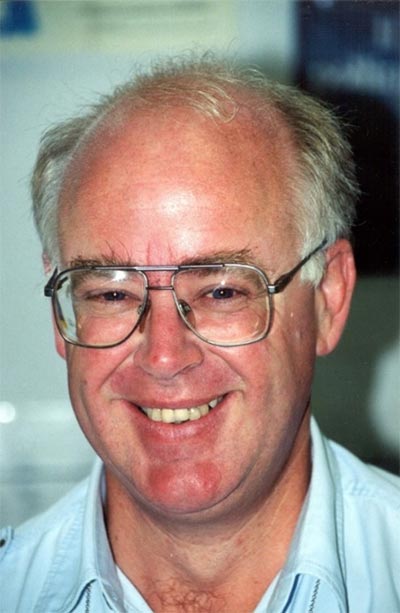Michael Maley

Photographer unknown. (1999). Michael Maley during his time as part of UNTAET.
‘The pen is mightier than the sword,’ may sound cliché, but it’s not a phrase to scoff at, as Michael Maley PSM saw it proven true time and time again throughout his 30-year career with the Australian Electoral Commission (AEC).
Michael joined the Australian Electoral Office, now the AEC, in 1982 and has been involved in electoral work around the globe.
He has worked with the United Nations (UN) on several missions, including: the United Nations Transition Assistance Group (UNTAG) in Namibia, the United Nations Transitional Authority in Cambodia (UNTAC), the United Nations Observer Mission in South Africa (UNOMSA) and the United Nations Transitional Administration in East Timor (UNTAET).
In 1999, Michael was the AEC’s Director of Research and International Services and supported the United Nations Mission in East Timor (UNAMET) ahead of the historic 1999 East Timorese popular consultation (independence referendum).
Michael recalled the challenges of planning an electoral operation in a foreign country from scratch and from afar.
‘None of the fine details that you would need to run the operation were spelled out, so they had to be worked out,’ he said.
‘At the UN’s request I went to New York for two weeks in May 1999 with Kerry Heisner, who was the head of the AEC in the Northern Territory.
‘We sat down and came up with an operational plan on what voter registration, polling and counting would look like.’
In just two weeks, Michael and Kerry had put together a voter registration manual for a poll that was only three months away.
‘We felt that we had to turn ourselves inside out to provide any form of support,’ he said.
On 30 August 1999, the Timorese people turned up in droves at polling booths in East Timor and around the world.
Michael has nothing but praise for the efforts of the UNAMET personnel who served on the ground in East Timor, and his AEC colleagues, but he says the triumph belongs to the Timorese people.
‘The Timorese are an amazing people, they stuck their necks out,’ he said.
‘There’s a tendency to think of elections or referendums as the sole responsibility of the electoral authority, but really you need to think of an electoral process as an undertaking of the entire community.
‘The people who were willing to work with UNAMET as language assistants were absolutely crucial.
‘If you want to communicate with people at all, which is fundamental to the electoral process, you have to have language assistants. These are always the people who get targeted, and 14 UNAMET local staff were murdered in the aftermath of the process.
‘They knew the risks but were prepared to take them anyway, same for the voters.
‘UNAMET would have been impossible without the active support of the Timorese people.’
Michael was buoyed to see such a strong response at the polling booths from the Timorese community in Australia on voting day.
‘A man I saw voting in Melbourne, I was told he died the next day, so there was a strong commitment from the Timorese community here in Australia,’ he said.
‘Being involved in the process was quite rewarding, to have been involved in the design and to see it working.
‘I actually watched the first ballot paper come off the printing press.
‘You’re always witnessing history, and that’s part of the pleasure in this sort of work.’
Michael didn’t just witness history in 1999, he played a part in it.
The results were undeniable. The 98% voter turnout resulted in a 78.5% vote in favour of independence from Indonesia.
Despite the overwhelming result, pro-Indonesian militias retaliated with a campaign of violence against the Timorese people, which led to the establishment and deployment of the Australian-led International Force for East Timor (INTERFET).
Some 5,500 Australians served in INTERFET, and over 18,000 Australians served in Timor-Leste between 1999 and 2013.
Michael believes everyone who served in Timor-Leste should be proud to have helped the Timorese people.
‘The Timorese look back on the contributions of UNAMET and INTERFET with a lot of positive vibes,’ he said.
‘I was in Dili recently for the 25th anniversary of the popular consultation on 30 August and they celebrate it because it gave them their freedom, just as they commemorate INTERFET because of the lives which the intervention saved.
‘I’ve got a very good Timorese friend who named his son after Peter Cosgrove, and he’s not the only one either.’
Source: DVA interview with Michael Maley, September 2024.
